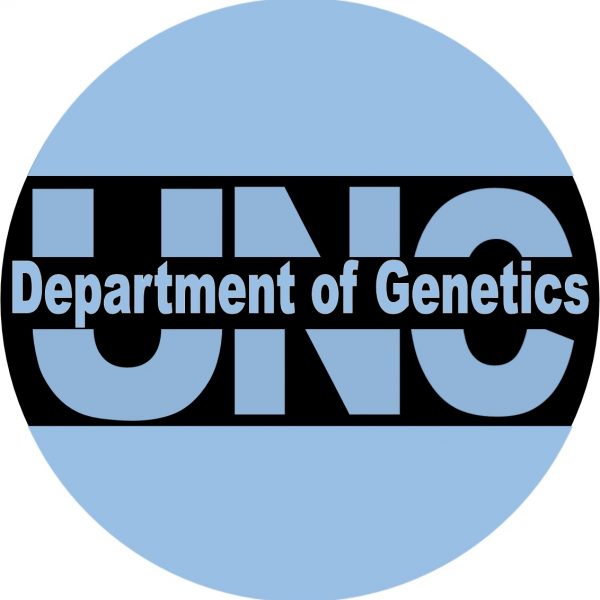Research Interests
Key words: mouse models for human diseases, genes that modify disease progression
Our lab is using the recently developed technique known as gene targeting to create animal mouse models for human diseases and to identify genes that modify the progress of these diseases. The technique of gene targeting, which allows us to introduce specific changes into the genomes of experimental animals, relies on recent advances in the fields of homologous recombination and embryonic stem (ES) cell technology. The first step in this procedure, once the gene to be modified has been chosen, is to obtain corresponding genomic DNA sequences using stardard cloning techniques. After introducing desired mutations into the cloned DNA using conventinal molecular biology techniques, the genomic sequences are incorporated into a plasmid known as a targeting vector. When this plasmid is introduced into mouse ES cells, the altered genomic sequences are able to undergo homologous recombination with the corresponding endogenous sequences, thereby inroducing the desired modifications into the moust genome. ES cells are unique in that they can be grown in tissue culture while maintaining their totipotency. Thus, one ES cells carrying the desired mutation are identified, they can be returned to an embryo, resulting in the formation of a chimeric animal. If the embryonic stem cells participate in the formation of the germ line of the chimeric animal. the mutation will be transmitted to the chimera’s offspring, and a mouse line carrying the desired mutation will be created. The effect of this alteration can then be studied in vivo. This technology has opened an exciting new avenue for addressing numerous biological and medical problems.
We have used gene targeting to generate an animal model for the most common genetic disease n the Caucasian population, cystic fibrosis. We are continuing to characterize this animal and to modify it to produce a disease that more closely resembles human cystic fibrosis. A second area in which our lab is interested involves the study of the inflammatory processes involved in allergic responses, asthma, and arthritis. Our current efforts are aimed at generating animals deficient in various factors that are believed to be important in these diseases. By providing us with a better understanding of the immunological processes that underlie allergic responses, asthma and arthritis, these animals should help us to identify more effective treatments for these diseases.
Mentor Training:
- SOM DEI Program part 1 – Unconscious Bias
Publications
Lab Members
- Martina Kovarova, Research Assistant Professor, Email
- Jay Snouwaert, Research Associate, Email
- Rachel Lail, Graduate Student, Email
- Anne Latour, Technician. Email
- Mytrang Nguyen, Technician, Email
- Zhidan Xiang, Postdoctoral fellow, Email
- Michael Backlund, Postdoctoral fellow, Email
- Steven Lommatzch, MD, Pulmonary fellow, Email
- Sarah Keilson, Undergraduate student, Email
Beverly Koller in UNC Genetics News

April 15, 2024
Bev Koller, PhD, Promoted to Professor
Dr. Bev Koller has been promoted to Professor with permanent tenure in the Department of Genetics, effective March 29, 2024.

March 3, 2024
Department of Genetics Publications for February 18th – March 2nd, 2024
Department of Genetics faculty, postdocs, students and collaborators published 11 papers during February 18th - March 2nd 2024.

January 8, 2024
Department of Genetics Publications for December 17th 2023 – January 6th 2024
Department of Genetics faculty, postdocs, students and collaborators published 12 papers during December 17th 2023 - January 6th 2024.

March 13, 2023
Department of Genetics Publications for February 26th – March 11th, 2023
Department of Genetics faculty, postdocs, students and collaborators published 12 papers during February 26th – March 11th, 2023.

February 27, 2023
Department of Genetics Publications for February 12th – 25th, 2023
Department of Genetics faculty, postdocs, students and collaborators published 9 papers during February 12th – 25th, 2023.

December 1, 2022
Genetics Faculty Awarded New Subcontracts and Service Agreements
Multiple faculty in the Department of Genetics have been awarded new subcontracts from other universities or a new service agreement with a company.

December 1, 2022
Dr. Bev Koller Awarded New R21 Grant from NIAID
Bev Koller, PhD (Associate Professor, Genetics) has been awarded a new R21 grant from the National Institute of Allergy and Infectious Disease (NIAID) for her project titled “Modeling the contribution of coronavirus cellular tropism to viral pathogenesis”.

October 10, 2022
Department of Genetics Publications for September 25th – October 8th, 2022
Department of Genetics faculty, postdocs, students and collaborators published 10 papers during September 25th – October 8th, 2022.

September 20, 2022
Drs. Jenny Ting and Bev Koller Awarded New R01 from NIAID
Jenny Ting, PhD (Distinguished Professor) and Bev Koller, PhD (Associate Professor) received a new R01 grant from the National Institute of Allergy and Infectious Diseases (NIAID) for their project titled “Role and mitigation of inflammasomes and inflammation during COVID-19”.

November 29, 2021
Department of Genetics Publications November 14th – 27th 2021
Department of Genetics faculty, postdocs, students and collaborators published 16 papers during November 14th – 27th 2021.
